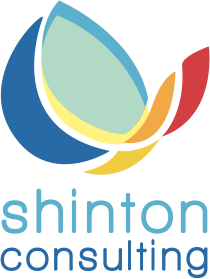I’ve spent most of this week where I spend a lot of my time – in UK universities working with research staff and academics. I’ve had lot of conversations about various aspects of academia and careers but two really stand out.
One was with an institute director with whom I was discussing some ideas to support his researchers. We met at the end of a long day for both of us and I must admit I went into the meeting with some weariness. I received a email just before the meeting from someone who has a habit of sending scornful messages and was distracted thinking about how I was going to respond. I was facing a long drive home and an early start the next day.
Two and a half hours later I emerged from a meeting which completely energised me. We had a great plan and determination to turn our ideas into an event or programme. We’d shared book recommendations and people in our networks. My good mood wasn’t due to the prospect of a new piece of work (although that’s great), but because I’d connected with a positive person. For those few hours, anything was possible.
Academic life isn’t easy at the moment. I spent a day with new and emerging research leaders this week and the discussions about REF were demoralising for me (let alone them). It feels like the important things in academia that can’t be measured are being devalued, and that the sector risks favouring 4* papers over “4* people”. The pragmatist in me understands where REF has come from and that scrutiny of academia is part and parcel of public funding, but it worries me that we risk losing a generation of brilliant, committed people who are made to feel that they don’t tick the right boxes.
The second conversation of the week was with someone like this. They are exactly the kind of person who should succeed in academia. Passionate about their work, delivering important outcomes and yet demoralised by the perception that they are failing. During our conversation I recalled my meeting earlier in the week and we talked about the power of positive people. I suggested they find ways to spend time with people with a positive approach – working with them if possible.
As we spoke about ways to find positive people and connect with them, two areas of opportunity cropped up – the impact agenda and the push towards collaborative research. Both of these are based on developing relationships and both provide the chance to meet people who care about the things you care about. Even if they are only a small part of your workload, these connections might “top up your happy tank” enough to get you through the daily grind.
Although I now work on the periphery of academic life, I’ve embraced both of these ideas. I’ve found another positive person (a teacher in a local school) and set up and run a very successful little science festival. (If you know me, you’ll know ALL about this, otherwise, check out last year’s event…). I think the success of this is down to the fact that both Andrew and I focus on what is possible, rather than what is difficult. I’m not suggesting it was easy to run the event, but it was fun and energising because we kept meeting people who were positive about what we were doing. Neither of us receive an income from our work on the festival but it pays a rich wage in terms of the people we meet and the satisfaction we get from delivering a great event.
I’m also collaborating much more as part of my professional life. Although this means sharing rewards and remuneration, the benefits are huge. I use collaboration as a mechanism to spend time with other positive people – I perform better with them because they inspire me to push forwards and do bigger things. Not all of our projects come to fruition but we all benefit from the time we spend together.
Some people have the negative default – focusing on what you can’t do and why “that won’t work here”. They often make good points and help us avoid repeating mistakes, so this post isn’t suggesting that you should avoid all negative thought. However, if the negative voices are all you hear, they will stifle you.
Time with positive people builds your resilience. They remind you of why you’re in your role and why it’s important. They give you permission to be positive yourself and to get excited again about being a researcher.
